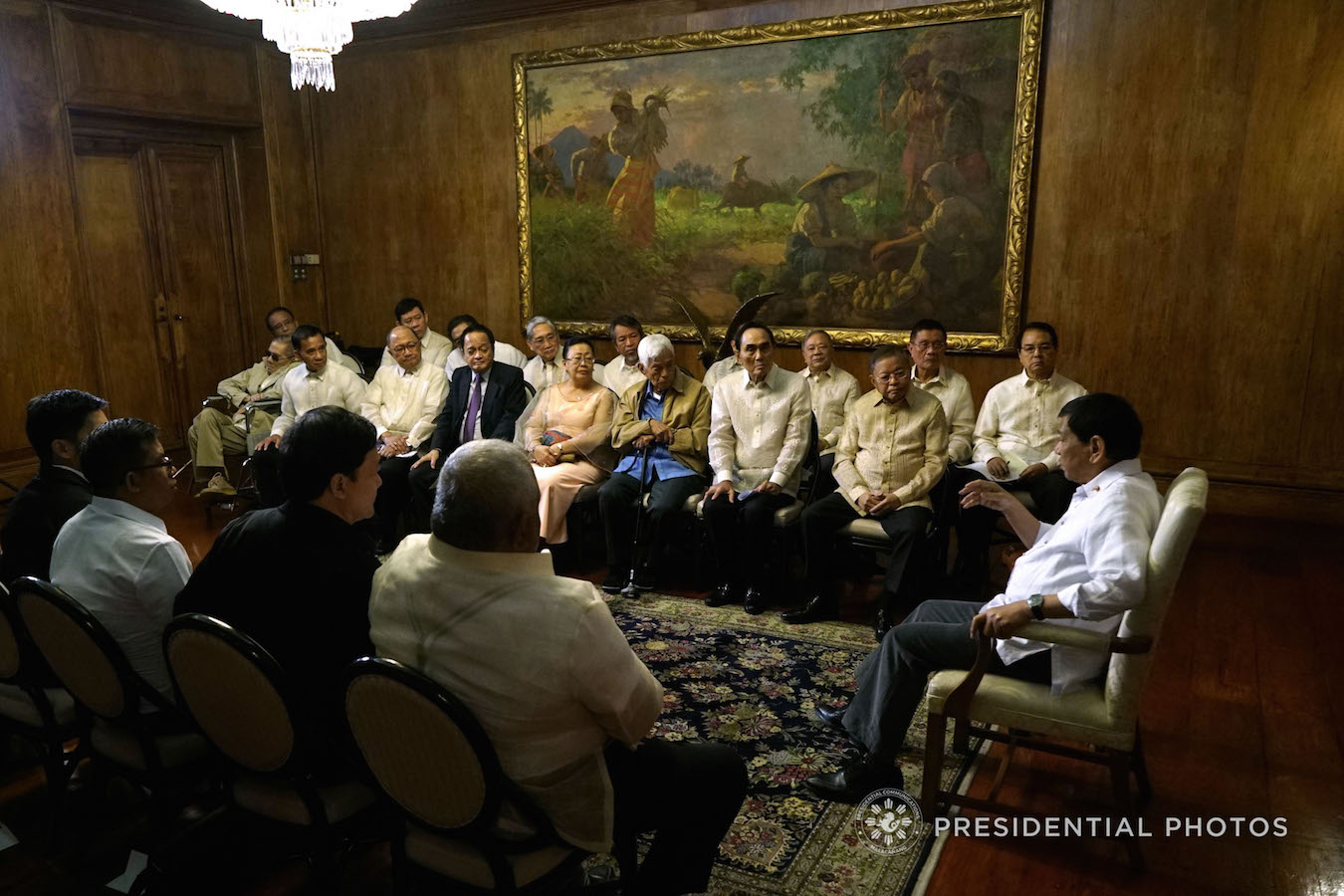Headline
Intergovernmental relations key to ‘bayanihan’ federalism

FILE: President Rodrigo Roa Duterte presides over a meeting with the members of the Consultative Meeting at the Malacañan Palace on February 13, 2018. KING RODRIGUEZ/PRESIDENTIAL PHOTO
MANILA – Members of the Consultative Committee (ConCom) on Charter change on Friday highlighted the integral role of intergovernmental relations (IGR) in a federal system, particularly their version of the system dubbed as “bayanihan” or cooperative federalism.
In a press conference at Dusit Thani Manila in Makati City, ConCom member Julio Tehankee said IGR is the “oil” that will make federalism work and government operations run smoothly.
IGR is a network of institutions interacting at the national, provincial, and local levels interpedently. It enables the various branches of government to cooperate according to institutional arrangements.
“That is exactly what our own concept of bayanihan federalism is all about–it’s really about intergovernmental relations,” Tehankee said.
Bayanihan federalism simply meant that “no province, no city will stand alone or be left behind” as it promotes the spirit of cooperative competition or “coopetition.
”
Another ConCom member, professor Edmund Tayao, said IGR is “integral” to the federalism project as it allows for an efficient decentralization of power and makes a multi-level governance work.
“(Under the present system), there’s only one single flow of dynamic and that is top down.
In a federal form of government, it’s not only top down. It could be bottom up or side by side, among others,” Tayao said.
Under a federal government, power is divided between the central government and local state governments. Each state shall be empowered to handle their own laws, finances, development plans, health, education, and infrastructure, among others.
For his part, Department of the Interior and Local Government (DILG) spokesperson Jonathan Malaya stressed the need to institutionalize IGR to address issues such as duplication of powers, lack of concentration, poor services, and wastage of public funds.
“Intergovernmental relations, whether it is a federal system or a devolved system in the Philippines, would be very crucial to improve the level of public service to our people,” Malaya said.
Malaya said the DILG is committed in its push for federalism with the brand dubbed as “bayanihan” federalism.
“Under this cooperative federalism, we don’t focus on exclusive powers but focus instead on shared powers between the national and regional governments,” Malaya said.
“We are confident that once the concrete model comes out, support for the federal shift will snowball,” he added.
The DILG conducted a two-day joint forum themed “Multi-level Systems of Government-Structural Features and Intergovernmental Relations” in partnership with the Forum of Federations and the Asia Foundation.





















